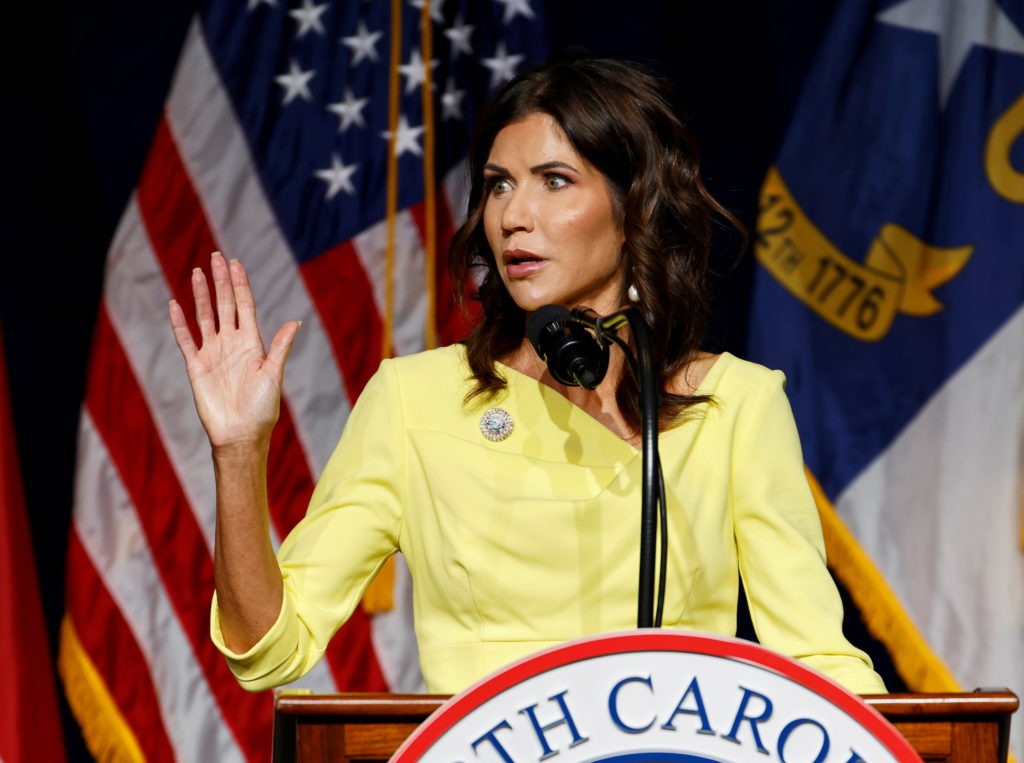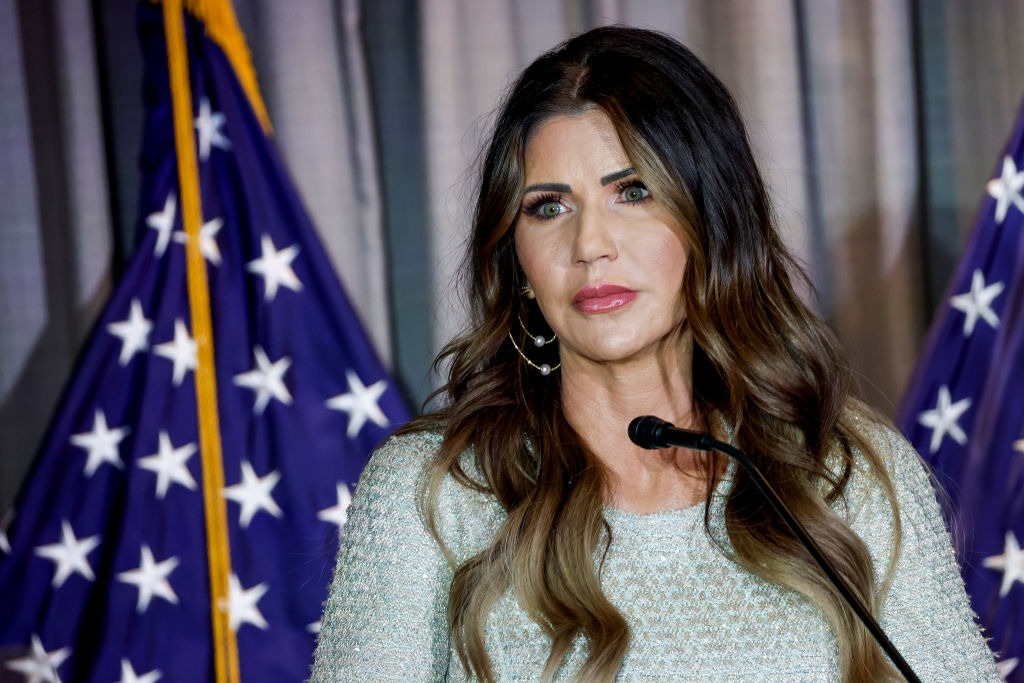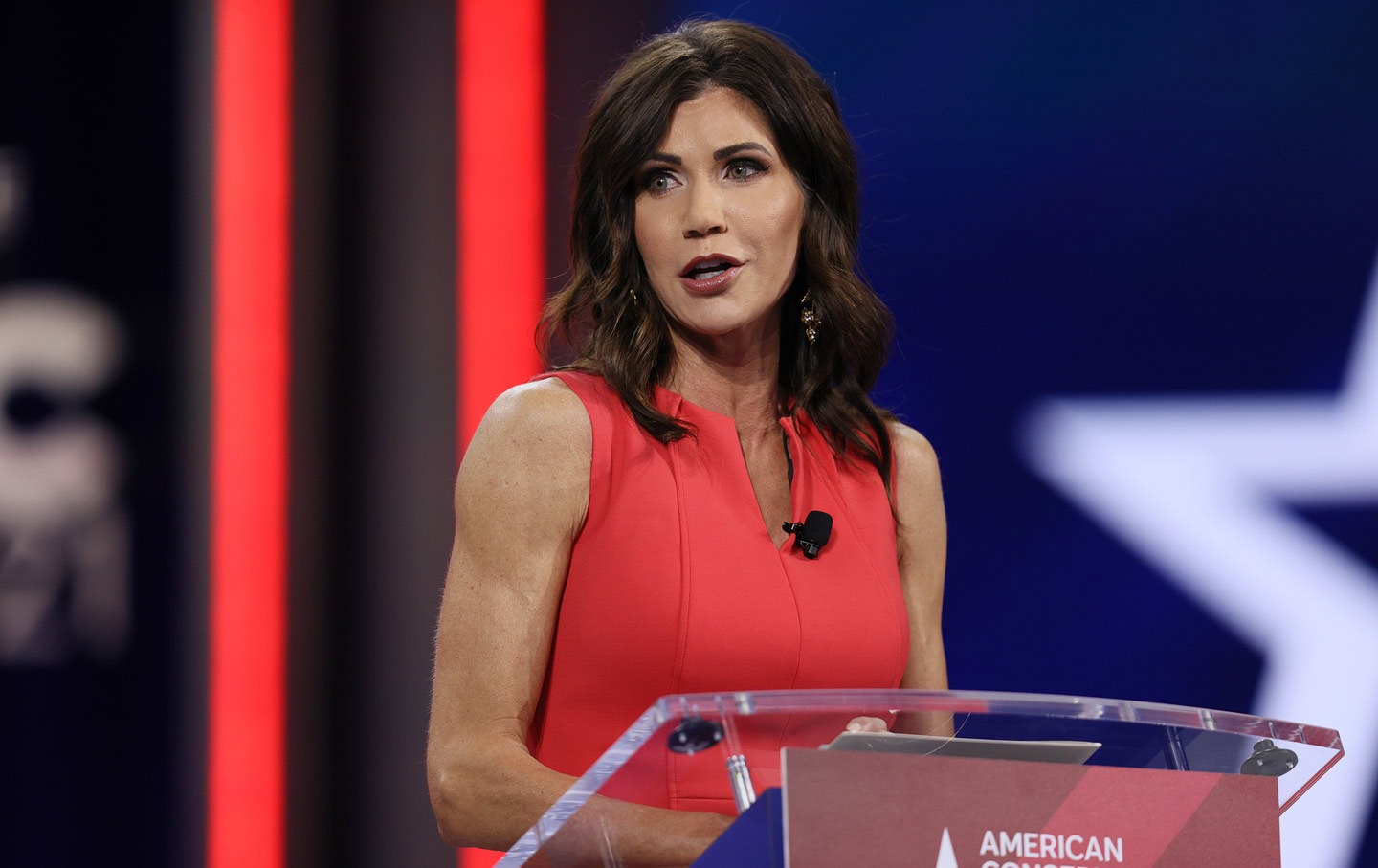Multiple tribal nations in South Dakota have taken the unprecedented step of banning Governor Kristi Noem from their reservation land due to her remarks on immigration, crime, and race.
The strained relationship between Noem and the tribes dates back to her assumption of office in 2019, but recent comments have exacerbated tensions, leading to her being barred from over 10 percent of the state’s land.

South Dakota Governor Kristi Noem (Credits: PBS)
The Oglala Sioux Tribe was the first to implement the ban in February, following Noem’s characterization of the U.S.-Mexico border situation as an “invasion.” President Frank Star Comes Out criticized her use of National Guard troops and her rhetoric blaming President Biden for the crisis.
Subsequently, the Cheyenne River Sioux Tribe and the Standing Rock Sioux Tribe followed suit, expressing concerns about Noem’s comments and her perceived lack of respect for tribal sovereignty. The Rosebud Sioux Tribe joined them, citing not only recent remarks but also broader issues with Noem’s relationships with tribes during her tenure.

Kristi Noem (Credits: South Dakota Search)
Noem has defended her stance on the border situation, asserting that tribal communities are impacted by the influx of migrants. She reiterated her commitment to addressing public safety issues on reservations and announced plans for a law enforcement training program.
Despite the bans, Noem remains resolute in her efforts to address tribal concerns, calling for federal support for tribal law enforcement and highlighting the support she claims to have received from tribal members.
The situation underscores the complex dynamics between state leaders and tribal nations and raises questions about governance, representation, and the role of federal authorities in addressing issues affecting indigenous communities.


























